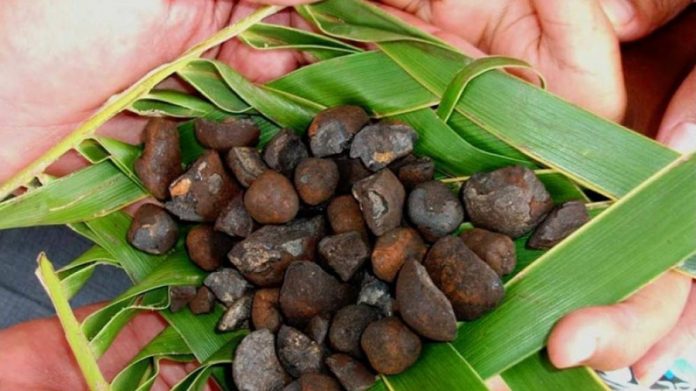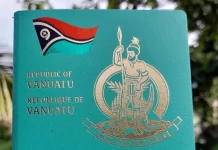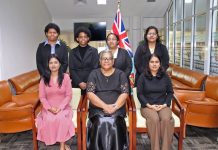Cook Islands will continue to support the work of the International Seabed Authority(ISA) in developing global seabed mining regulations, and the country will continue to follow its own process at its own pace.
Prime Minister Mark Brown responded to questions on the matter by Cook Islands News after the Pacific island nation of Nauru notified the International Seabed Authority (ISA) this week of its plans to commence deep-sea mining by 2023 under whatever rules are in place.
Nauru’s manoeuvring gives the ISA two years to complete long-running discussions on rules that will govern the emerging and controversial industry.
PM Brown said: “The Cook Islands will continue to support the work of the International Seabed Authority to ensure that it develops a robust and effective framework that supports the sustainable management and stewardship of the deep-seabed and its resources for the benefit of all humanity.”
Nauru’s triggering of the so-called “two-year rule” this week – which allows for a mining plan to be approved after two years under the ISA rules that are in place at that time – has alarmed scientists and conservationists, who have argued that not enough is known about the deep-sea environment and mining’s potential effects.
Last week, Reuters reported ISA member states still hold differing views over a number of issues, including the sharing of royalties.
The Cook Islands is currently processing four exploration licence applications by companies that have expressed interest in the nation’s polymetallic nodule resources.
A government official said a decision on the licences has not been made, and an update on expected timeframes on the decision-making process will be made sometime this month.
“… a key objective of our exploration licensing process is to enable research within our waters under the principles enshrined under our Marae Moana,” PM Brown said.
“This will help provide Government with the vital data and information it needs about our deep sea marine environment and the potential impacts of mining to make an informed decision about whether to proceed any further.
“We will continue to follow the process we have set for ourselves and at our own pace.”
Polymetallic nodules are said to be rich in cobalt, copper, nickel, and manganese – all key materials used in the manufacturing of batteries that proponents of seabed mining say will help fuel a clean-energy boom.
According to one estimate, the Cook Islands’ exclusive economic zone may contain as much at 10 billion tonnes of nodules.
But a handful of multinational corporations, including Samsung and BMW, have signed up to a World Wildlife Fund call for a moratorium on seabed mining.
Nauru is a sponsoring state for Nauru Ocean Resources Inc (NORI), a wholly-owned subsidiary of The Metals Co, which was formerly known as DeepGreen.
The Pacific Blue Line, a collective of regional NGO’s, issued a statement on Wednesday saying Nauru’s decision ignores “the potentially wide-ranging environmental damage arising from deep sea mining.”
“An aggressive push by any industry player to fast-track the conclusion of seven years of ongoing global negotiations on the mining code can only be seen as a naked attempt to highjack and undermine the prospects of achieving the most stringent standards and regulations for the extremely risky experimental activity of mining the deep seabed,” the group said in its statement.
Rarotonga-based environment NGO Te Ipukarea Society has called on government to place a cap on the number of exploratory licences at four, and for no licences to be issued for commercial mining until more research is carried out on the potential impacts of mining activity.
PM Brown said currently not enough is known about the deep sea environment to commence mining operations.
“Within the Cook Islands waters, we currently do not have enough information to make that decision,” he said.
“We will continue to proceed with a precautionary approach, making decisions based on the best available science to responsibly manage our seabed minerals resources and maintain our marine biodiversity.”.
SOURCE: COOK ISLANDS NEWS/PACNEWS















